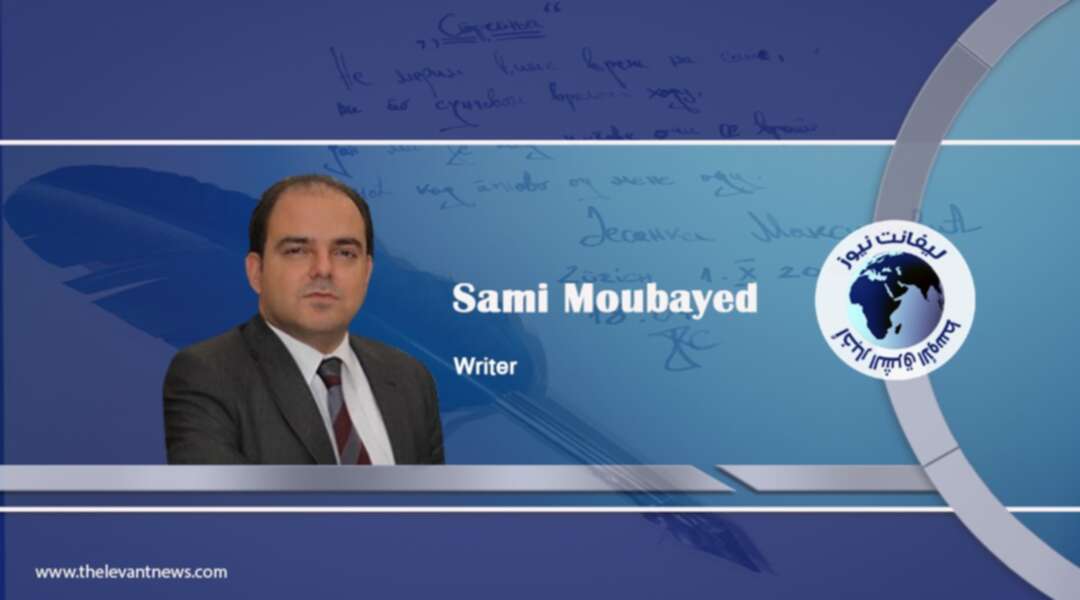-
The unorthodox alliance: Tehran’s relation with the Muslim Brotherhood

Months before outbreak of World War II, a 38-year-old Iranian cleric named Ruhollah Khomeini visited Cairo to meet with Imam Hasan al-Banna, founder of the Egyptian Muslim Brotherhood. Despite their ideological differences, they seemed to have gotten along well since both were fiercely opposed to European colonialism and shared a common objective of creating an Islamic state. They strongly differed, however, on who ought to have succeeded the Prophet Mohammad after his death in 632. Banna insisting that Abu Bakr al-Saddiq was the rightful successor to Mohammad while Khomeini claimed that the caliphate out to have gone to the prophet’s son-in-law and nephew, Ali Ibn Abi Talib. That seemed trivial, however, when compared to what they really had in common: hatred of the West, the need to apply Islamic Sharia and to scrap constitutions throughout the Muslim world, replacing them with Holy Qurans.
During the inter-war years, the Sunni-Shiite divide had been successfully suppressed (albeit briefly and often superficially) as scholars from both religious communities teamed up to unite Islamic voices and manpower across the region. That collaboration survived well into the 1950s, as they found a new common enemy, being President Gamal Abdul Nasser. The works of the Brotherhood’s chief idealogue Sayyid Qutob inspired Iranian Islamists and opened their eyes on how to establish an Islamic state (he was subsequently convicted of plotting for Nasser’s assassination and executed in 1966). In fact, his works were eventually translated from Arabic into Persian by none other than Ali Khamenei, the current Supreme Leader of Iran, then a young scholar studying in Najaf.
After 1979
When Khomeini and Khamenai toppled Shah Reza Pahlavi in February 1979, the Egyptian Brotherhood were among the first to recognize the Islamic Revolution, showering it with praise. They cheered Khomeini’s decision to suspend relations with Israel and hand its embassy premises in Tehran to the Palestinian Liberation Organization (PLO). They now found a new common enemy in Nasser’s successor Anwar al-Sadat, who had mended relations with the Shah and given him asylum in Cairo, months before signing the famous Camp David Accords with Israel. When he was assassinated by Egyptian Islamist Khaled Islambuli in October 1981, Khomeini described the assassin as a “martyr of Islam” and a street was named in his honor in Tehran (in 2004, the street was renamed Intifada Street). The Egyptian Brotherhood was 51-years older than the Islamic Revolution in Iran. There was plenty that the mullahs of Tehran could learn from the MB, like how to present themselves to the West for example and how to infiltrate high society, making political Islam popular to the urban rich decades of thriving in the countryside and among the urban poor.
Relations under Morsi (2012-2013)
Fast forward to 30 June 2012, when Muslim Brotherhood leader Mohammad Morsi was elected president of Egypt, after the popular revolution that toppled President Hosni Mubarak. Tehran described the Brotherhood’s ascent as an “Islamic Awakening,” reaching out to Morsi to normalize relations that had been suspended since 1980. In August 2012, Morsi landed in Tehran and then-Iranian President Mahmud Ahmadinejad reciprocated by attending a summit of the Organization of Islamic Cooperation in Cairo in February 2013. The Morsi government pleased Islamists worldwide but it was too good to last. By July 2013 Morsi had been toppled, arrested, and humiliated, replaced by current President Abdel Fattah al-Sisi.
Iranian media trashed the Egyptian coup of 2013, echoing a line taken by Turkish state media at the orders of the Brotherhood supporter and former member, Recep Tayyip Erdogan. During Morsi’s trial, he was accused, among other things, of collaborating with the Iranian Revolutionary Guard Corp (IRGC) to stage terrorist attacks in Egypt during the years 2005-2012. The IRGC was also accused of helping storm Egyptian prisons to free members of the Brotherhood during the January 2011 Revolution. According to a media report by the Saudi-channel, al-Arabiya, top Iranian general Qassem Soleimani had traveled to Egypt in 2013, disguised as an Iranian tourist, where he met with Khairat al-Shater, deputy supreme leader of the MB. The report claimed that they had discussed how to establish an Egyptian Islamic Revolutionary Guard Corps, to be chaired by President Morsi. When former US President Donald Trump toyed with the idea of designating the Muslim Brotherhood as a terrorist organization back in 2019, Iran was the only country—along with Turkey—to stand up for the Brotherhood.
Bilateral relations today
Despite their differences, the two sides remain on very good terms in 2021. They still have their differences, no doubt, mainly over Iranian military presence in Syria, but again, just like back in 1938, what unites them is far greater than what doesn’t. Both have an axe to grind with Saudi Arabia, although that might soon be settled by Tehran, as bilateral talks progress over normalization. Both are vehemently opposed to the recent normalization deals between Arab states and Israel and both remain committed to the Palestinian Islamic group Hamas, which is an offshoot of the Egyptian Brotherhood.
The latest war in Gaza was a blessing-in-disguise for many regional actors, namely Iran, Hamas—and the Brotherhood. Members of the Egyptian MB had been worried by an increasingly hostile neighborhood, especially after the recent thaw in Egyptian-Turkish relations. Their activities in Ankara might get restricted and they still have Qatar to lean on, but they were looking for a wider Arab embrace, now made increasingly difficult by their outlawing in Jordan, a country that until last year, had officially tolerated their activities. Hamas’ performance during the latest Gaza conflict—where it fired rockets deep into Israel—will undoubtedly popularize political Islam throughout the Muslim World, restoring the relevance of Hamas and the MB, making them appealing to a new generation of Arab youth. The more powerful they become, the more it pleases Iran, being the one country that continues to support Islamic groups—whether Sunni or Shiite—in its proxy war against Israel.
by: Sami Moubayed

You May Also Like
Popular Posts
Caricature
BENEFIT Sponsors BuildHer...
- April 23, 2025
BENEFIT, the Kingdom’s innovator and leading company in Fintech and electronic financial transactions service, has sponsored the BuildHer CityHack 2025 Hackathon, a two-day event spearheaded by the College of Engineering and Technology at the Royal University for Women (RUW).
Aimed at secondary school students, the event brought together a distinguished group of academic professionals and technology experts to mentor and inspire young participants.
More than 100 high school students from across the Kingdom of Bahrain took part in the hackathon, which featured an intensive programme of training workshops and hands-on sessions. These activities were tailored to enhance participants’ critical thinking, collaborative problem-solving, and team-building capabilities, while also encouraging the development of practical and sustainable solutions to contemporary challenges using modern technological tools.
BENEFIT’s Chief Executive Mr. Abdulwahed AlJanahi, commented: “Our support for this educational hackathon reflects our long-term strategic vision to nurture the talents of emerging national youth and empower the next generation of accomplished female leaders in technology. By fostering creativity and innovation, we aim to contribute meaningfully to Bahrain’s comprehensive development goals and align with the aspirations outlined in the Kingdom’s Vision 2030—an ambition in which BENEFIT plays a central role.”
Professor Riyadh Yousif Hamzah, President of the Royal University for Women, commented: “This initiative reflects our commitment to advancing women in STEM fields. We're cultivating a generation of creative, solution-driven female leaders who will drive national development. Our partnership with BENEFIT exemplifies the powerful synergy between academia and private sector in supporting educational innovation.”
Hanan Abdulla Hasan, Senior Manager, PR & Communication at BENEFIT, said: “We are honoured to collaborate with RUW in supporting this remarkable technology-focused event. It highlights our commitment to social responsibility, and our ongoing efforts to enhance the digital and innovation capabilities of young Bahraini women and foster their ability to harness technological tools in the service of a smarter, more sustainable future.”
For his part, Dr. Humam ElAgha, Acting Dean of the College of Engineering and Technology at the University, said: “BuildHer CityHack 2025 embodies our hands-on approach to education. By tackling real-world problems through creative thinking and sustainable solutions, we're preparing women to thrive in the knowledge economy – a cornerstone of the University's vision.”
opinion
Report
ads
Newsletter
Subscribe to our mailing list to get the new updates!




















